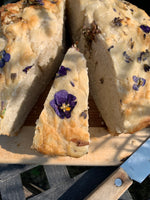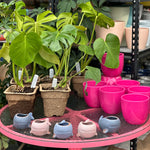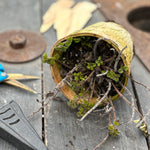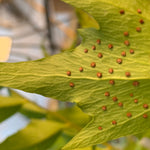With fall conditions rapidly removing leaves from the trees home owners are turning their attention to raking... sometimes madly! Lawns and gardens can become very leafy at this time of the year. So the question becomes: is this okay and what should we do with these leaves? Here are some pointers.
1) Fallen leaves are an awesome resource and an important part of local ecology. Therefore (as much as possible) leaf material should be left more-or-less where it is. Many types of wildlife depend of leaf debris for food and shelter (including native butterflies, earth worms and birds); leaf litter also helps keep weeds down and insulate the ground and surrounding plants for winter. Finally, fallen leaves contribute significant nutrients and vital micro-organisms that keep soils healthy.
2) Where it is not practical or even permitted to leave foliage on the lawn (some suburban developments, for example), think about mulching the material finely and spreading on the lawn or garden. Leaves are a phenomenal source of nutrients! Adding mulched leaves to existing garden beds is a hugely effective way to build soil health. Best of all: leaf litter is a reliable and free resource for improving clay soils! It is not necessary to dig leaf litter in - simply spread on top of soil and Mother Nature takes care of the rest.
3) If you have an active compost pile or actual composter, dried leaves are an important source of "browns" (supplying carbon).
4) There are a few situations where leaf litter can pose a problem. For example the leaves of many fruit trees are susceptible to fungal diseases that may create a vicious cycle of disease when used as mulch. If there are any know disease issues avoid using these leaves as mulch / litter. Another situation where leaf litter can cause trouble is on perennial beds where plants have sensitive crowns (the top part of a root that develops the above ground stems). Some examples include asparagus, echinacea and peonies. For these types of plants it is best to ensure leaves are not piled on thick or heavy - best to mulch before spreading.
There has been a big shift in terms of local homeowners diverting leaf debris from the landfill; but thousands of bags end up in local landfills none-the-less! Hopefully you can take advantage of the many benefits of leaves for your lawn and garden while also helping reduce the burden on our waste disposal sites. Leaves are free and abundant - truly a gift to us gardeners.







